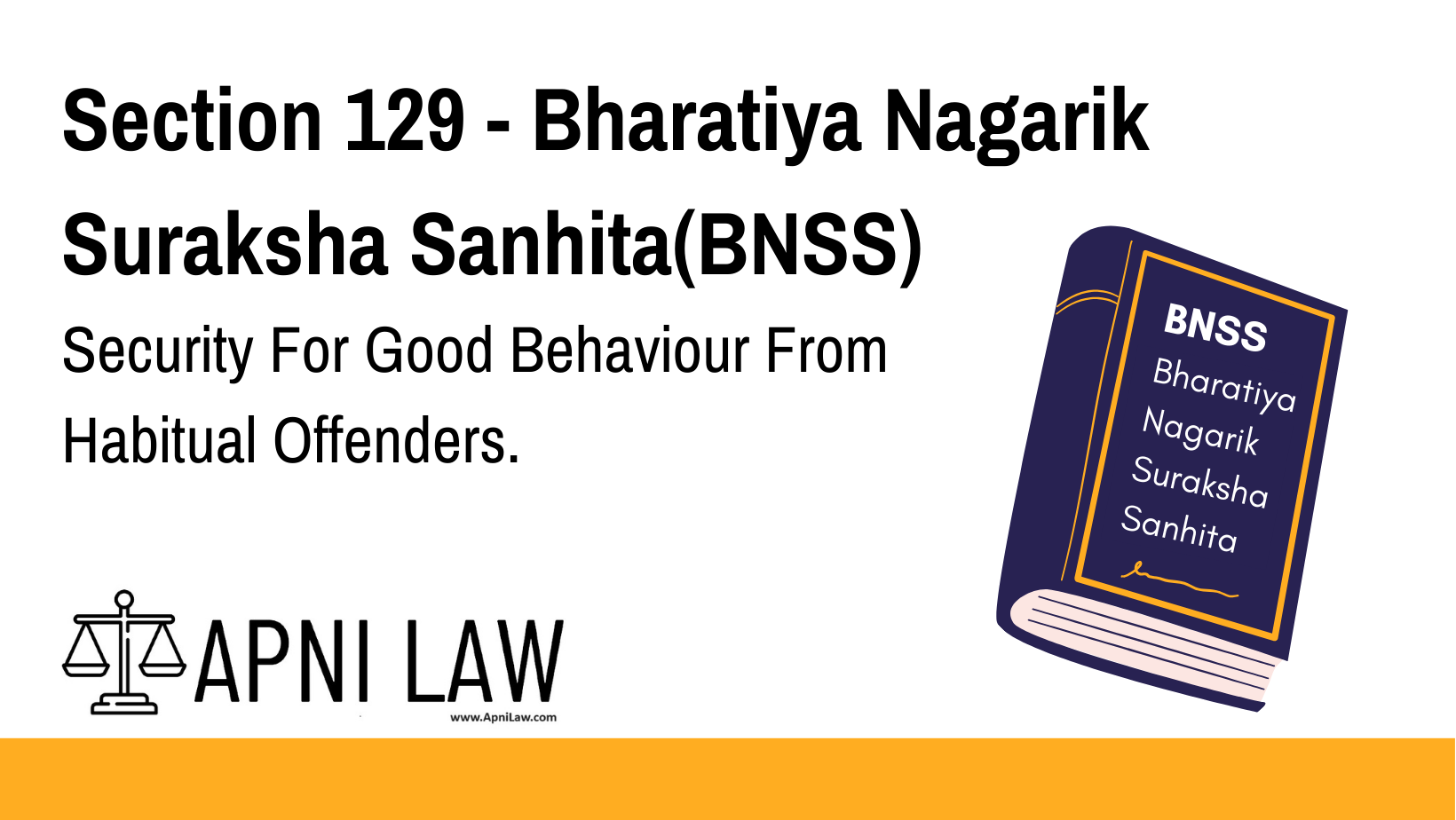Code
When an Executive Magistrate receives information that there is within his local
jurisdiction a person who—
(a) is by habit a robber, house-breaker, thief, or forger; or
(b) is by habit a receiver of stolen property knowing the same to have been
stolen; or
(c) habitually protects or harbours thieves, or aids in the concealment or disposal
of stolen property; or
(d) habitually commits, or attempts to commit, or abets the commission of, the
offence of kidnapping, abduction, extortion, cheating or mischief, or any offence
punishable under Chapter X of the Bharatiya Nyaya Sanhita, 2023, or under
section 178, section 179, section 180 or section 181 of that Sanhita; or
(e) habitually commits, or attempts to commit, or abets the commission of,
offences, involving a breach of the peace; or
(f) habitually commits, or attempts to commit, or abets the commission of—
(i) any offence under one or more of the following Acts, namely:—
(a) the Drugs and Cosmetics Act, 1940;
(b) the Foreigners Act, 1946;
(c) the Employees’ Provident Fund and Miscellaneous Provisions
Act, 1952;
(d) the Essential Commodities Act, 1955;
(e) the Protection of Civil Rights Act, 1955;
(f) the Customs Act, 1962;
(g) the Food Safety and Standards Act, 2006; or
(ii) any offence punishable under any other law providing for the
prevention of hoarding or profiteering or of adulteration of food or drugs or of
corruption; or
(g) is so desperate and dangerous as to render his being at large without
security hazardous to the community,
such Magistrate may, in the manner hereinafter provided, require such person to show
cause why he should not be ordered to execute a bail bond, for his good behaviour for such
period, not exceeding three years, as the Magistrate thinks fit.
Explanation
This section outlines the conditions under which an Executive Magistrate can require a person to provide surety for their good behaviour. This applies to individuals who habitually engage in criminal activities, including:
- Robbery, housebreaking, theft, forgery
- Receiving stolen property
- Protecting or harbouring thieves
- Habitually committing offences like kidnapping, abduction, extortion, cheating, or mischief
- Offences under Chapter XII of the Bhartiya Nyaya Sanhita, 2023
- Offences under sections 176, 177, 178, or 179 of the Bhartiya Nyaya Sanhita, 2023
- Offences involving breach of peace
- Offences under specific Acts like the Drugs and Cosmetics Act, Foreigners Act, Employees’ Provident Fund Act, Essential Commodities Act, Protection of Civil Rights Act, Customs Act, Food Safety and Standards Act, etc.
- Offences punishable under other laws pertaining to hoarding, profiteering, adulteration, or corruption
- Individuals deemed to be desperate and dangerous to the community
Illustration
A person has been repeatedly arrested for theft and has been convicted multiple times. The Executive Magistrate, observing this pattern, can order this person to execute a bond with sureties to ensure good behaviour for a period not exceeding three years. This prevents the individual from continuing their criminal activities and helps maintain peace in the community.
Common Questions and Answers:
- Q: Who can invoke Section 129?
A: An Executive Magistrate, who holds authority within their local jurisdiction.
- Q: What is the maximum duration for which a bond can be required?
A: The maximum duration is three years.
- Q: What happens if a person fails to provide surety?
A: The Magistrate has the power to detain the person in custody for a period not exceeding three months. They can then be released on bond or imprisoned according to the law.
- Q: Can a person appeal against a Magistrate’s order?
A: Yes, the person can appeal against the Magistrate’s order to a higher court.








